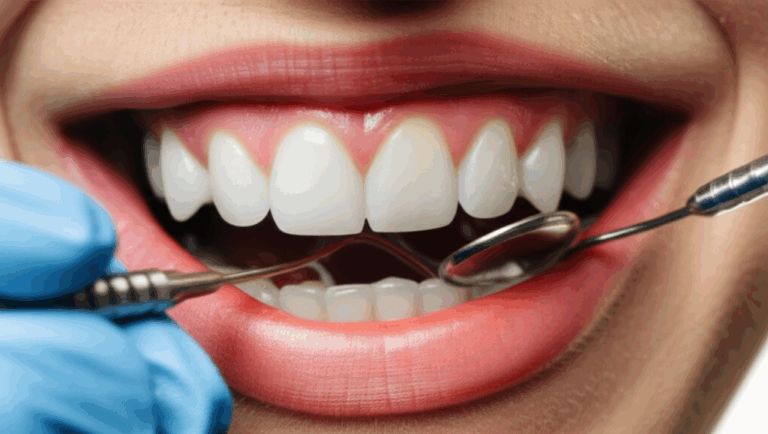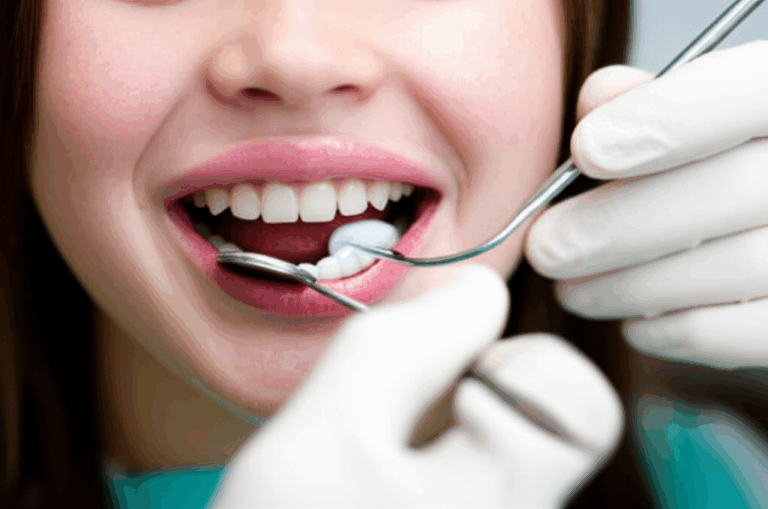
Dentist Job Outlook 2024-2034: Growth, Trends, and Future Prospects
Does a dentist’s job have a bright future? Are more people going to need dentists in coming years? This article breaks down the facts you want to know, using real numbers and simple words. I’m sharing what I’ve learned from people who know about this job and my own time working as a dentist. If you’re thinking about becoming a dentist or just want to know what the job market holds, you’re in the right place.
In this article, we’ll answer questions like:
- Will there be enough dentist jobs in the future?
- What things are making dentist work different?
- Should you go to dental school?
- Which dental jobs are growing faster?
- How much can a dentist expect to make?
Let’s see what the future looks like for dentists—and how you can get started.
Table of Contents
What Does a Dentist Do, Really?
Most folks know dentists fill cavities and clean teeth. But that’s only part of what they do. Dentists help people keep their teeth in good shape. They fix teeth that are broken or missing. They show kids and grown-ups how to brush and floss the right way. They use things like digital x-rays and 3D printers. Some dentists make crowns and bridges; others put on braces or help with gum problems.
Dentists work in different places:
- Private dental offices
- Hospitals
- Clinics
- Community health centers
- Some even teach at dental schools.
And when someone needs special care, a dentist can send them to another expert—like an orthodontist or an oral surgeon.
Why Does the Dentist Job Outlook Matter?
You may wonder, “Why care about how easy it is to get a dentist job?”
Here’s why. Picking a job is a big deal. Going to dental school takes a lot of time, effort, and money. Before you start down that road, you want to know if there will be spots waiting when you’re done. Maybe you’re in dental school now and wondering, or maybe you’re a parent or teacher helping someone else.
If dentist jobs are on the rise, that’s good news. If people want dentists, pay will stay good. More jobs also mean you can pick where you want to live and work.
What Are the Growth Numbers for Dentists?
Let’s look at the facts.
The U.S. Bureau of Labor Statistics (BLS) keeps track of job growth. They say that from 2022 to 2032, dentist jobs will grow by about 6%. That’s about the same as most other jobs.
Here’s a simple table with the main numbers:
| Statistic | Value | What It Means |
|---|---|---|
| Projected Job Growth (2022–2032) | 6% | Steady, solid, not super fast but still good |
| New Jobs Expected | 7,200 | Thousands of new dentist jobs will open up |
| Median Annual Pay (2022) | $163,220 | Dentists get paid well—more than most jobs |
| Top 10% of Dentists | Over $208,000 | Dentists with experience can make even more |
| Percentage in Private Offices | 87% | Most work in little offices or with a small group |
Dentists are always needed. Toothaches don’t care about the economy!
What’s Pushing Demand for Dentists?
Why are more dentist jobs showing up? A few reasons:
1. More Older People, More Tooth Care Needed
The aging population is keeping their own teeth longer than before. Older people still need check-ups, crowns, bridges, and sometimes dentures.
2. Kids Need Dentists Too
Children and teens need braces, cleanings, fillings, and check-ups. Keeping mouths healthy starts when you’re young!
3. More People Have Dental Insurance
With things like Medicaid and the Affordable Care Act, more folks can pay for dental care now. When people can pay, they tend to see the dentist more.
4. Dentists Retiring
Many dentists will retire soon. Someone’s got to take their place. Even if the total number of dentist jobs doesn’t jump a lot, there are always spots opening as older dentists leave.
How Is Technology Changing the Dental Field?
Dentists don’t work the same way they did years ago. High-tech tools are everywhere now.
1. Digital Dentistry
From digital dental labs that make crowns and bridges fast to 3D printing mouth guards, tech is making dental care easier and better. Dentists can send scans to the digital dental lab at the press of a button. No more messy molds!
2. Teledentistry
Teledentistry lets dentists talk to patients through video. It helps people who don’t live near a dental office or can’t travel. During the pandemic, teledentistry kept a lot of dental care going.
3. Artificial Intelligence (AI)
AI is starting to help dentists spot holes in teeth or plan what work someone needs. AI can help make things faster, but it doesn’t replace the dentist.
So, does all this tech mean there will be less need for dentists? Not really. Dentists still need to do the job, and the machines just help them do it faster and better.
What’s the Outlook for Dental Specialties?
Not all dentists do the same thing. Some focus on certain areas and go back for more years of school. These are the main kinds of dentists and what their job looks like:
General Dentists
These dentists handle most of the common jobs—cleanings, fillings, check-ups, and fixing teeth. They’re needed everywhere.
Orthodontists
These experts put on braces or clear aligners. Both kids and adults want straight teeth now, so the outlook for orthodontists is great.
Oral and Maxillofacial Surgeons
These are the folks who take out wisdom teeth, help if someone cracks a jaw, or treat face injuries. They always have work because their job is so special.
Pediatric Dentists
Since there are so many kids, there’s always a need for dentists who treat baby teeth, help kids learn good habits, and watch how their mouths grow.
Other Kinds of Dentists
Endodontists do root canals, periodontists help with gum disease, and prosthodontists replace teeth with things like bridges or dentures, working with a crown and bridge lab.
All of these jobs are growing, and a few (like orthodontists) are even getting bigger faster than regular dentist work.
Where Are Dentist Jobs Located?
People need dentists everywhere, but some places need them more.
City vs. Country
Big cities have a lot of dentists—sometimes too many. But rural areas or little towns might only have a few. If you like a quiet life, you could get lots of patients without much competition outside the city.
Some towns will even help new dentists pay off their loans if they will work in a local clinic or health center.
Different States and Countries
Dental jobs are not the same in every state. Some still need more dentists. Around the world, places like Australia, some parts of Africa, or country towns in China also need more dental workers.
If you want to see new places, you can take your skills almost anywhere.
What Education and Skills Do Dentists Need?
Dentists need special schooling. First, you need a bachelor’s degree. Then you go to dental school—four more years for your Doctor of Dental Surgery (DDS) or Doctor of Dental Medicine (DMD).
Some dentists go on for more training to be experts (like in braces). Even when you’re done with school, you need to keep learning new things to stay up to date.
What skills will help you?
- Being good at science and math
- Having steady hands
- Lots of patience (for your patients!)
- Talking clearly since you have to explain things every day
- Problem-solving, because every mouth is different
Is it Hard to Get a Job After Dental School?
Dental school is tough to get into. Only the best students can do it. Once you finish and get your license, will a job be there?
Mostly yes—if you are willing to move or join a group practice. Retiring dentists leave jobs open. But in big cities, there are more new dentists all the time, so it can be harder.
If you don’t mind working in a place that needs more help, joining a group, or looking at new things like dental ceramics lab work or teledentistry, you can find a spot.
What Do Dentists Earn?
Here are the numbers. The average dentist made about $163,220 in 2022. The top 10% make over $208,000—especially if they’ve been working a long time, have special skills, or own their own spot.
What decides your pay?
- Where you work (big city, small town, another country)
- What kind of dentist work you do (general, braces, implants)
- How many hours and patients you have
- If you own the office or work for a big company
New dentists start lower (around $76,010), but pay goes up with time. If you own your practice, you can make even more, but it’s also more work and risk.
Is Dentistry a Safe and Stable Career Choice?
Let’s use the Problem-Agitate-Solution way of looking at things:
Problem
People need jobs that don’t go away fast, even if tech gets better or the economy slows down.
Agitate
No one wants to study for years and then find out their job isn’t needed anymore. Some jobs (like working in a factory or newspapers) are shrinking. Is being a dentist one of those jobs?
Solution
Dentistry is different. People will always need someone to fix cavities, broken teeth, and gums. Machines and tech help, but they can’t do everything a dentist does. New tech, like what you’d find at a modern china dental lab, just helps dentists do a better job.
If you keep learning and growing, you’ll be ready for anything that comes next. People really trust their dentists, and that’s hard to replace.
Conclusion: What Should You Remember?
Dentist jobs look good for the future, judging by the numbers. Tech is making things change, but it’s for the better. If you want to learn, help others, and keep people healthy, dentistry could be the right pick.
Key Points to Remember
- Dentist jobs are expected to grow 6% from 2022 to 2032.
- Most dentists work in their own office, but jobs are in hospitals, clinics, and studying new things too.
- More older people, better insurance, and new health rules are making more work for dentists.
- Tech makes life easier, but it doesn’t take dentist jobs away.
- Special dentists like orthodontists and oral surgeons have an even better outlook.
- Places outside cities or where there aren’t many dentists may give extra benefits.
- Pay is good, and you can make more with more skills or owning a practice.
- Getting into dental school is hard, but the job is worth it.
- Dentistry is a solid, steady job if you’re ready to work.
References
- U.S. Bureau of Labor Statistics, Occupational Outlook Handbook (Dentists)
- American Dental Association (ADA)
- Reports from dental industry leaders
Dentistry is changing—but people still need someone to fix their smiles. If you like helping others, want a stable job, and enjoy learning new things, the outlook couldn’t be brighter.








